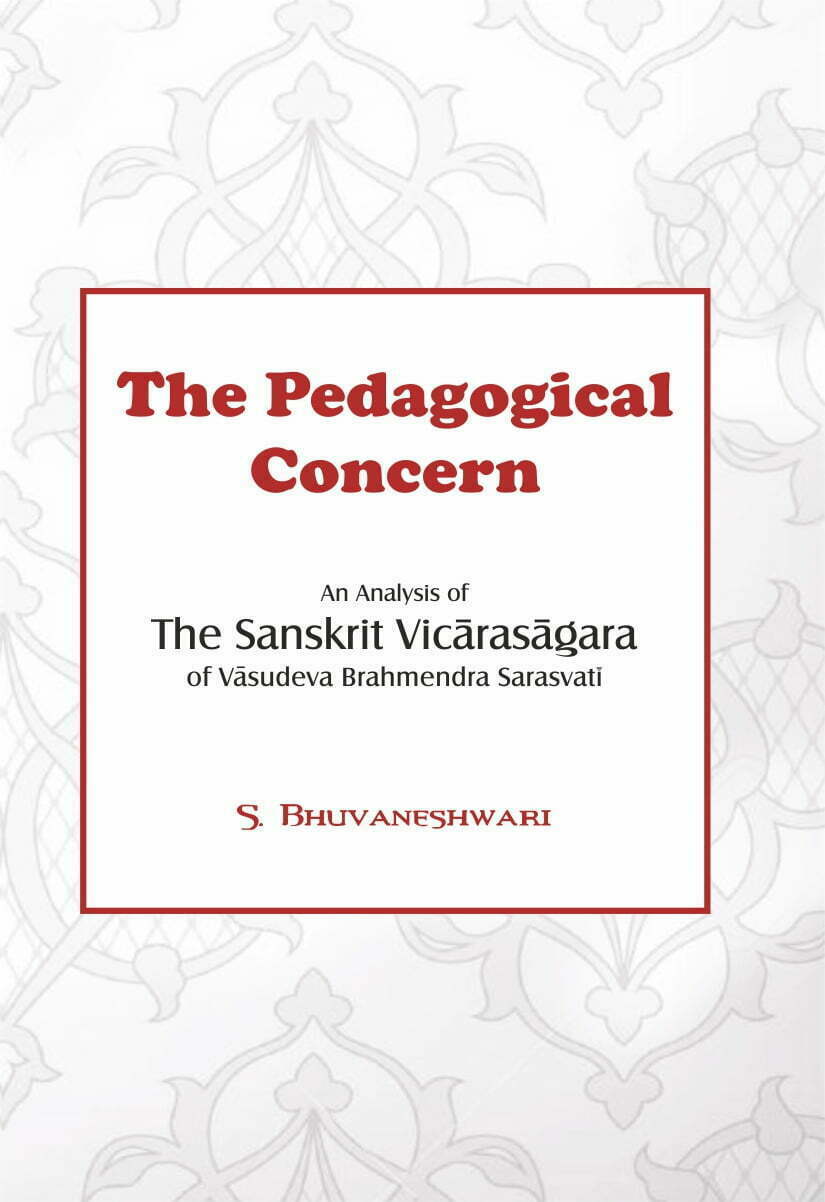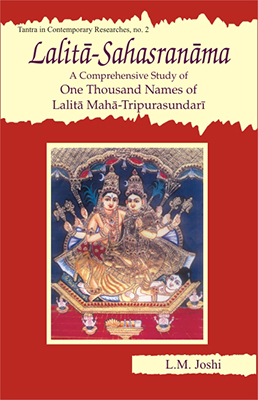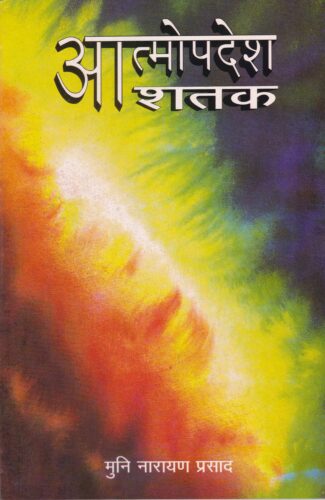-


Pedagogical Concern...
Pedagogical Concern
An Analysis of the Sanskrit Vicarasagara of Vasudeva Brahmendra Sarasvati by: S. BhuvaneshwariA unique pedagogical method of teaching of Advaita is presented in the Sanskrit trans-creation of Nishcaladasas Vicharasagara and its tippani by Pitambar, by Vasudeva Brahmendra Sarasvati, depending on the need of different types of seekers uttama, madhyama and kanishtha adhikaris simplifying the teaching and learning of Advaita even for laymen.
₹855.00
ISBN: 9788124608180
Year Of Publication: 2015
Edition: 1st edition
Pages : xxviii, 356
Bibliographic Details : Appendices, Bibliography
Language : English
Binding : Hardcover
Publisher: D.K. Printworld Pvt. Ltd.
Size: 23
Weight: 750
This book is a critical study of the Sanskrit trans-creation of Vicharasagara by Vasudeva Brahmendra Sarasvati of Nishcaladasa in one of the dialects of Hindi and its tippani by Pitambar, again in the same dialect, imparting a unique teaching technique of Advaita to different types of aspirants. The book thus unfolds the teaching of Advaita depending on the need of different types of seekers uttama, madhyama and kanishtha adhikaris. The volume focuses on two layers of concerns: first, of the appropriate modifications made by the trans-creator using simple Sanskrit and second, in the dialogue between the guru and the different adhikaris.
This critical study introduces us to: (i) the life and works of Nishcaladasa, Pitambar and Vasudeva Brahmendra; (ii) emergence of adhikari-based pedagogy system; and (iii) the employment of pedagogical tools by the guru, depending upon the character and needs of the seeker. The related questions and discussions found in different tarangas of Vicarasagara are pooled in and presented in a cohesive manner to arrive at the core of Nishcaladasas work. It also delves deep into topics such as meditation and its efficacy as a means to gradual liberation, and the nature of liberation.
The book, therefore, introduces the well-defined concepts of Vedanta in a simple pedagogical way as a dialogue between the preceptor and the student, helping even a layman to understand the nuances of Advaita, otherwise a hard subject to digest and grasp.
Foreword
Preface
Abbreviations
1. Introduction (Upodghata)
2. On the Nature of Aspirant (Adhikarisvarupaprakarana)
3. On the Nature of Knowledge (Jnanasvarupaprakarana)
4. On Impediments to Knowledge and Their Remedies (Jnanapratibandhanivrittishca)
5. On the Nature of Meditation (Upasanasvarupaprakarana)
6. On the Nature of Liberation (Mokshasvarupaprakarana)
Conclusion
Appendices
Bibliography








